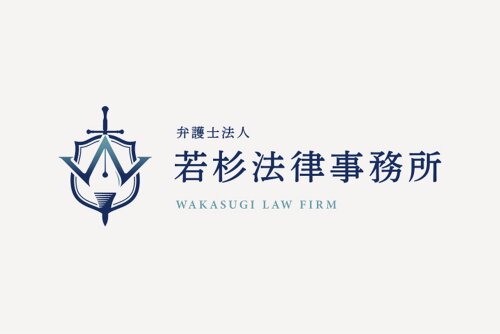Best Military Divorce Lawyers in Fukuoka
Share your needs with us, get contacted by law firms.
Free. Takes 2 min.
Free Guide to Hiring a Family Lawyer
List of the best lawyers in Fukuoka, Japan
About Military Divorce Law in Fukuoka, Japan
Military divorce in Fukuoka, Japan refers to the legal dissolution of a marriage when at least one spouse is a member of the armed forces of Japan or is affiliated with a foreign military stationed in the country. While military personnel are subject to the same national civil laws as civilians, unique procedures and considerations often apply, particularly regarding residency, notification requirements, and the division of assets or benefits. For foreign military families, additional regulations associated with the Status of Forces Agreement may also influence divorce procedures.
Why You May Need a Lawyer
Military divorce cases often involve complex legal and logistical challenges. You may need a lawyer if you are facing issues such as:
- Differing legal systems when one spouse is not Japanese
- Deciding on child custody or visitation rights when deployment or relocation is a factor
- Dividing pensions, military allowances, and overseas property
- Obtaining or serving divorce papers while one spouse is stationed elsewhere
- Clarifying rights under international or SOFA (Status of Forces Agreement) provisions
- Navigating language barriers and document translations
A lawyer with expertise in military divorce can provide essential guidance to ensure fair treatment, protect your assets, and help you understand both Japanese and international considerations.
Local Laws Overview
Japanese law governs divorce for military personnel residing in Fukuoka, with some unique provisions:
- Japan recognizes four types of divorce: Divorce by mutual consent, Divorce by mediation, Divorce by court settlement, and Divorce by judgment.
- If one spouse is not Japanese, international law, treaties, and the SOFA can come into play.
- Child custody is usually awarded to one parent, with visitation for the other, and joint legal custody is uncommon in Japan.
- The division of marital assets, including pensions and military benefits, follows Japanese law unless an international agreement states otherwise.
- Serving divorce papers to military personnel stationed abroad can require coordination with military authorities.
Legal procedures, required documentation, and timelines may vary based on individual circumstances, particularly when foreign spouses or children are involved.
Frequently Asked Questions
Can a non-Japanese spouse file for divorce in Fukuoka?
Yes, a non-Japanese spouse can file for divorce in Fukuoka if either spouse resides in Japan. Additional documentation relating to residency and marriage certificates may be required.
Does deployment affect divorce proceedings?
Deployment can complicate timing and communication. Courts may allow extensions or remote participation, but legal advice is important for managing the process efficiently.
How is child custody determined in a military divorce?
Japanese courts generally award sole custody to one parent, usually considering the child's residence and best interests. Military deployments may affect visitation rights and living arrangements.
Can Japanese courts enforce foreign military division of assets or pensions?
Enforcement depends on bilateral agreements and specific circumstances. Typically, Japanese courts divide assets acquired during marriage, but foreign pensions may require coordination with authorities overseas.
What role does the SOFA play in military divorce?
The Status of Forces Agreement (SOFA) primarily affects jurisdiction and legal process for foreign military families. SOFA provisions may influence court access, custody matters, and enforcement of decisions.
What documents are needed for a military divorce in Fukuoka?
Required documents usually include marriage certificates, resident registration, proof of military status, and identification documents. Additional paperwork may be necessary for foreign nationals.
Can I get a divorce without my spouse’s consent?
If mutual consent is not possible, you may pursue divorce through mediation or the Japanese Family Court. The process may take longer and require legal representation.
Is an overseas divorce recognized in Japan?
Japan may recognize overseas divorces if they meet local legal requirements and both spouses are properly notified. You may need to register the divorce in Japan for it to be effective.
How long does a military divorce take?
The timeframe can vary widely. Mutual consent divorces may proceed quickly, while contested divorces, especially those involving custody or overseas issues, may take several months or longer.
Where should I start if I need help with military divorce in Fukuoka?
Begin by consulting a lawyer experienced in military and international family law. They can guide you on documentation, legal requirements, and the best course of action for your situation.
Additional Resources
If you need more information or support, consider the following resources:
- Fukuoka Family Court - Handles family-related legal matters, including divorce and child custody.
- Legal Consultation Centers - Provide free or low-cost legal advice in Japanese and sometimes other languages.
- Japan Legal Support Center (Houterasu) - Government agency offering information and attorney referrals.
- Military Legal Assistance Offices - For those affiliated with foreign militaries, such as US military bases, these offices can provide guidance on military-specific legal issues.
- Local municipal offices - Can provide information on documentation and civil registry procedures.
Next Steps
If you are considering or facing military divorce in Fukuoka, here are the recommended steps:
- Gather all necessary documents, such as marriage certificates, proof of residency, and identification.
- Contact a lawyer who specializes in military or international divorce to discuss your situation and obtain tailored advice.
- If you are affiliated with a foreign military, speak with your legal assistance office.
- Visit your local municipal office or family court for information on filing procedures.
- Arrange for professional translation if any documents are not in Japanese.
- Prepare for possible mediation or court proceedings, especially if there is no mutual agreement to divorce.
Acting early and seeking professional guidance will help you navigate the complex issues surrounding military divorce in Fukuoka, Japan, ensuring that your rights and interests are protected throughout the process.
Lawzana helps you find the best lawyers and law firms in Fukuoka through a curated and pre-screened list of qualified legal professionals. Our platform offers rankings and detailed profiles of attorneys and law firms, allowing you to compare based on practice areas, including Military Divorce, experience, and client feedback.
Each profile includes a description of the firm's areas of practice, client reviews, team members and partners, year of establishment, spoken languages, office locations, contact information, social media presence, and any published articles or resources. Most firms on our platform speak English and are experienced in both local and international legal matters.
Get a quote from top-rated law firms in Fukuoka, Japan — quickly, securely, and without unnecessary hassle.
Disclaimer:
The information provided on this page is for general informational purposes only and does not constitute legal advice. While we strive to ensure the accuracy and relevance of the content, legal information may change over time, and interpretations of the law can vary. You should always consult with a qualified legal professional for advice specific to your situation.
We disclaim all liability for actions taken or not taken based on the content of this page. If you believe any information is incorrect or outdated, please contact us, and we will review and update it where appropriate.












